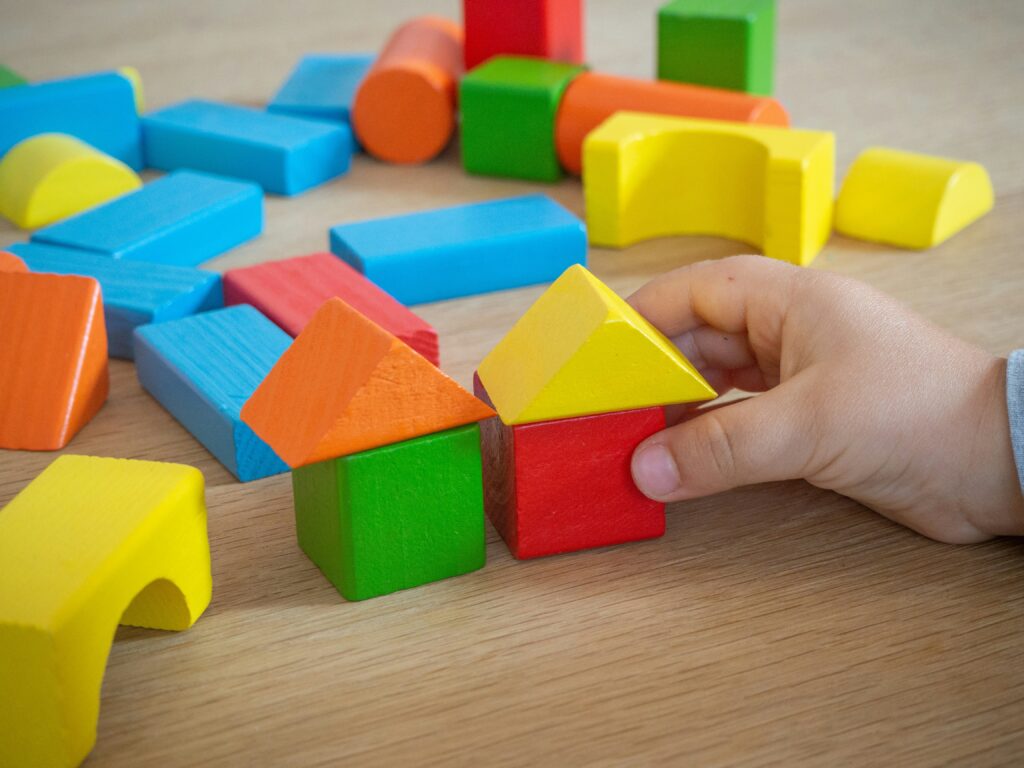EECERA Conference 2025 – Guest Blog # 5: Bridging Play and Learning
Posted 1st August 2025
One of a series of short blog posts by presenters who will be sharing their work at the upcoming annual conference in Bratislava, Slovakia. Any views expressed in this post are those of the author(s) and do not necessarily reflect the official stance of their affiliated institution or EECERA.
Bridging Play and Learning: What Happens When Teachers Reimagine Literacy and Numeracy Through Play
By Dr. Blerta Perolli Shehu – Faculty of Education, University of Prishtina

Photo by Michał Bożek on Unsplash
Across the early years, play has long been championed as central to child development. Yet in classrooms around the world—especially in literacy and numeracy instruction—play-based learning often takes a backseat to more structured, formalized approaches. In our latest research at the University of Prishtina, we sought to examine this tension and explore how early childhood educators actually integrate play as a pedagogical tool, especially within literacy and numeracy domains.
The study, conducted in partnership with public, private, and community-based early education institutions, used a mixed-methods design. We combined classroom observations with teacher self-evaluations to gain insights into the quality of teacher-child interactions, the nature of play-based activities, and the kind of instructional support children receive during these learning experiences.
What we found was both promising and thought-provoking. Educators consistently acknowledged the value of play in fostering early learning—but their practices often emphasized structure over exploration. Child-led inquiry, imaginative play, and guided discovery were underutilized, even though teachers showed strengths in facilitating collaboration and classroom dialogue.
The study underscores the need for continued professional development to support educators in shifting from a compliance-based model to one that empowers children’s agency and fosters deeper learning. Literacy and numeracy, we argue, need not be sacrificed at the altar of play—in fact, when integrated intentionally, play can provide the richest ground for these skills to emerge. Imagine a numeracy session where children measure ingredients for a pretend bakery or sort treasures from a storytelling adventure; these are moments where mathematical thinking becomes alive, embodied, and joyful.
Our research builds on my broader work in early childhood education systems in Kosovo and internationally, particularly in aligning early learning practices with developmental science and values-based pedagogy. As a Vice Dean and researcher at the Faculty of Education, I am currently involved in national reforms that embed inclusive, equity-centered teaching practices across teacher training programs. This study contributes directly to these efforts by helping us understand what kinds of teaching practices are already in place—and where we can better support playful, purposeful learning.
About the author:
Dr. Blerta Perolli Shehu is an Assistant Professor and Vice Dean for Science and Development at the Faculty of Education, University of Prishtina. With over 20 years of experience in early childhood education, inclusive pedagogy, and child development policy, she leads national reforms in Kosovo and contributes to global research on ECE and family-centered intervention systems.
Dr. Blerta Perolli Shehu will present work referred to in this blog in Symposium Set D (27th August). (Schedule liable to change; please refer to final programme for details).
